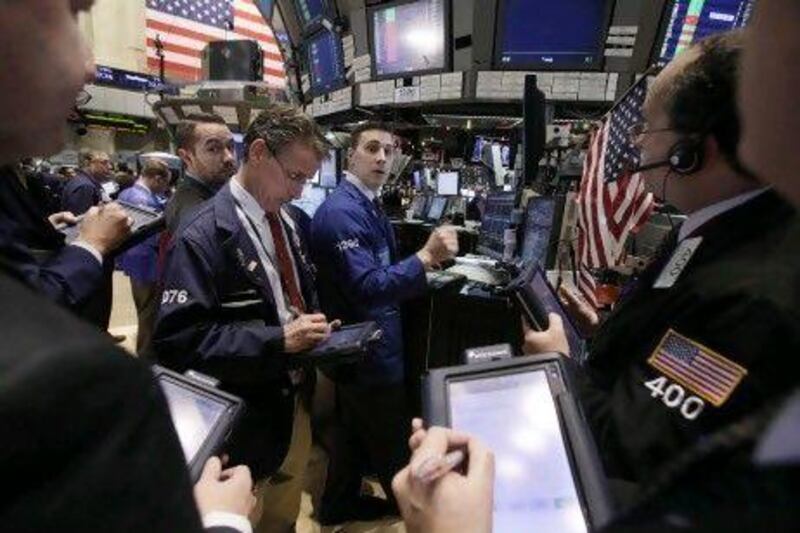Stocks surged after central banks agreed a coordinated effort to boost liquidity in a bid to prop up the global financial system.
The action comes as fears rise that the world's economy is at risk of stalling from the euro zone's debt troubles.
"The purpose of these actions is to ease strains in financial markets and thereby mitigate the effects of such strains on the supply of credit to households and businesses and so help foster economic activity," the European Central Bank and the US Federal Reserve said in a joint statement. The announcement sent shares higher with the euro zone's blue-chip Euro Stoxx up by more than 4 per cent.
In the US, the Dow Jones Industrial Average was up almost 400 points in early trade.
The euro also rebounded by 1 per cent against the dollar.
EU finance ministers met yesterday in Brussels to discuss how to resolve the debt crisis.
"What we are trying to do is to reinforce the means of the European Financial Stability Fund (EFSF)," Didier Reynolds, Belgium's finance minister, told Reuters. "We also probably need to go towards stronger action from the IMF and the European Central Bank."
The meeting came a day after euro-zone ministers agreed to increase the firepower of the bailout fund. But they said it was unlikely to reach its €1 trillion (Dh4.95tn) target. European leaders want to raise the EFSF in case large economies such as Italy or Spain need bailout money. The fund currently has a lending capacity of €440 billion.
Adding to the doom and gloom in the euro zone, joblessness in October hit its highest level since the creation of the single currency, according to data released yesterday from Eurostat, the region's official statistics agency. The rise means 10.3 per cent of the currency area's workforce is out of work.
About 16.3 million people in the euro zone were unemployed in the month, a figure not matched since records were first compiled in January 1995. But strong employment numbers from Germany indicate the region's largest economy is still managing to motor ahead. It posted a fall in its unemployment rate to 5.5 per cent from 5.7 per cent in September.
Surging unemployment elsewhere, however, adds to the challenge facing governments trying to cut the cost of borrowing as income from tax receipts ebbs.
* with Reuters





